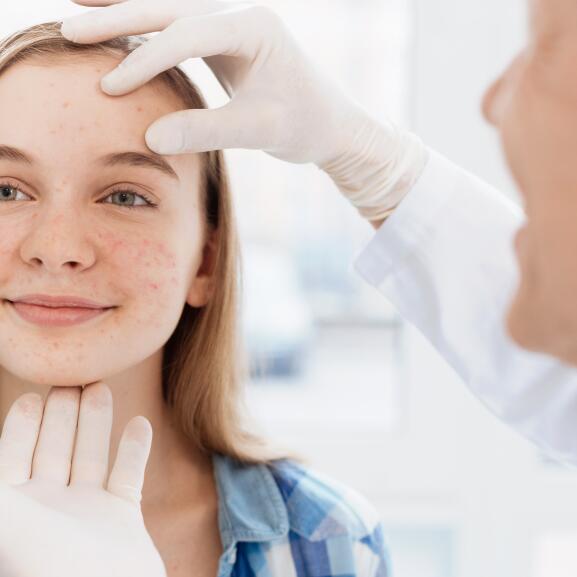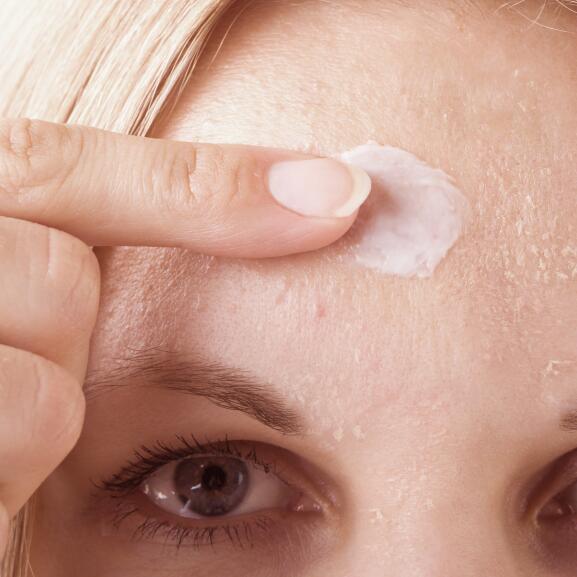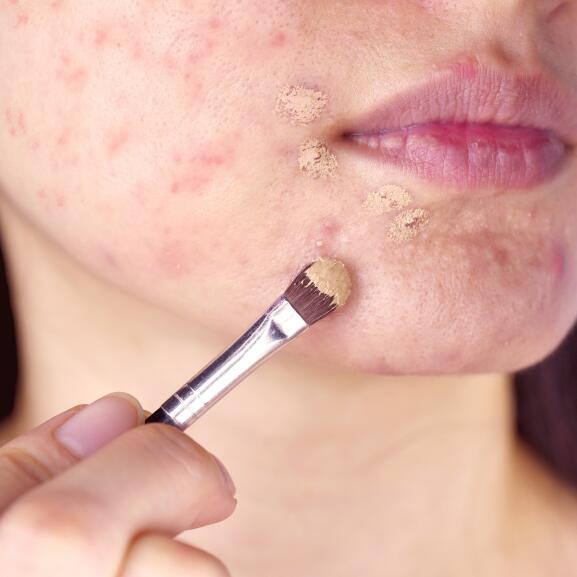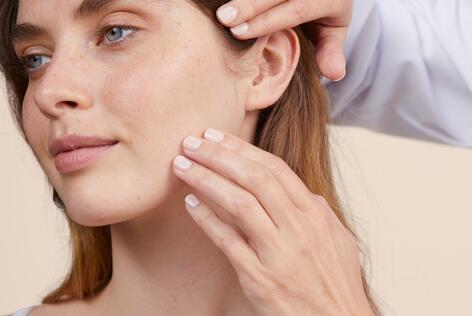Fighting severe acne
Fighting severe acne
Whether you’re a teenager or adult, acne can take severe forms that leave scars and impair your quality of life and self-confidence. Fortunately, proper treatment and good daily hygiene can help you fight severe acne. And you can count on us to share all our tips with you.

Which treatments are best for severe acne?
Acne treatment will depend on various factors, including severity, the risk of scarring, psychosocial repercussions, etc. Your dermatologist will be able to reassure and guide you. In the case of moderate to severe acne, an initial treatment combining a local treatment (benzoyl peroxide, retinoid) and an oral antibiotic (doxycycline or lymecycline) may be advised.
As a mother, I suffer seeing my son with these lesions on his face and back, and I feel helpless because he refuses all my advice.
Severe acne: everything you need to know about isotretinoin
In the case of severe to very severe acne, or if other treatments fail, isotretinoin (better known by its trade name Curacne®, formerly Roaccutane®) is often used.
How it works
Oral isotretinoin is a drug derived from vitamin A which significantly reduces sebum production. Its efficacy is due to the major impact it has on the activity of the sebaceous glands and the blocking of sebum production.
Use with care
First and foremost, isotretinoin is strictly contraindicated in pregnancy due to the risk of foetal malformation. Secondly, as with all medicines, it has side effects. Taking isotretinoin can be accompanied by dryness of the skin and mucous membranes. Fortunately, you can take action to relieve yourself of these effects. Don't worry, your dermatologist will discuss the subject with you in your appointments.
Severe acne and isotretinoin: tailor your skin care
To avoid skin rashes from isotretinoin, you will need to use compensatory skin care. Why “compensatory"? Because your skin care will "compensate" for dry skin by soothing, moisturising and nourishing your skin. Some products (such as the Cleanance HYDRA range) have been specifically created for skin that has been dried out and irritated by anti-acne medication. This care can give you some comfort.[break]Isotretinoin also makes the skin barrier more sensitive to UV light. So more than ever, if you have to go out in the sun, be sure to regularly apply a sun cream fluid with SPF 50+.

FRIENDLY (AND EXPERT) ADVICE
Even when undergoing treatment for severe acne, stick to your daily routine.
Cleansing your skin in the morning and evening helps keep it in balance. Choose gentle, soap-free cleansing gels that both purify and preserve the hydrolipidic film.
And for the entire treatment period, especially if your skin is particularly fragile from certain medications such as retinoids, the use of scrubs and exfoliating masks may damage your skin. Instead, choose emollient skin care products that will intensely moisturise and strengthen your skin's barrier function. And if your lips are chapped, the frequent use of a targeted balm or stick as often as needed will help restore softness.
Severe acne: the art of camouflage
Treatment for severe acne will require a little more patience, so in the meantime, there's nothing to stop you from using make-up to cover up any small blemishes that may be bothering you. In this case, use non-comedogenic cosmetic products designed for sensitive skin. Bonus tip: "matte finish” compact foundation creams are the most helpful in masking severe imperfections. And of course, always remove your make-up at night to keep your skin healthy.

Our solutions to care for your skin
Eau Thermale Avène treatments designed to restore comfort to skin dried out by medical treatments
- Thermal Spring Water Spray
Thermal Spring Water
Thermal Spring Water SpraySoothes - Restores the skin barrier - Calms
NEWSLETTER
We’re always here for your skin!
All our tips for taking care of your skin day to day.

Which skin care routine should you adopt?
Identify what it really needs with the help of our experts and discover the most suitable skin care routine for you.

